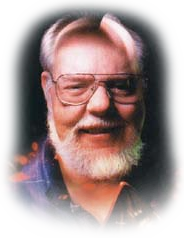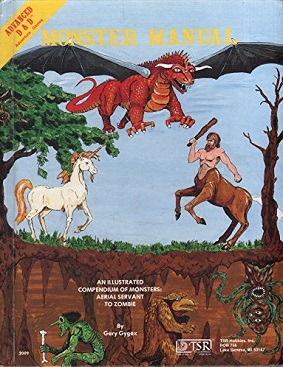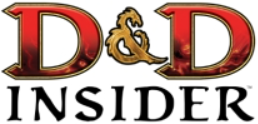Related Research Articles

Dungeons & Dragons is a fantasy tabletop role-playing game (RPG) originally created and designed by Gary Gygax and Dave Arneson. The game was first published in 1974 by Tactical Studies Rules, Inc. (TSR). It has been published by Wizards of the Coast, later a subsidiary of Hasbro, since 1997. The game was derived from miniature wargames, with a variation of the 1971 game Chainmail serving as the initial rule system. D&D's publication is commonly recognized as the beginning of modern role-playing games and the role-playing game industry, and also deeply influenced video games, especially the role-playing video game genre.

Richard Channing Garfield is an American mathematician, inventor and game designer. Garfield created Magic: The Gathering, which is considered to be the first collectible card game (CCG). Magic debuted in 1993 and its success spawned many imitations.

David Lance Arneson was an American game designer best known for co-developing the first published role-playing game (RPG), Dungeons & Dragons, with Gary Gygax, in the early 1970s. Arneson's early work was fundamental to the role-playing game (RPG) genre, pioneering devices now considered to be archetypical, such as cooperative play to develop a storyline instead of individual competitive play to "win" and adventuring in dungeon, town, and wilderness settings as presented by a neutral judge who doubles as the voice and consciousness of all characters aside from the player characters.

Monte Cook is an American professional tabletop role-playing game designer and writer, best known for his work on Dungeons & Dragons.

The Monster Manual is the primary bestiary sourcebook for monsters in the Dungeons & Dragons fantasy role-playing game, first published in 1977 by TSR. The Monster Manual was the first hardcover D&D book and includes monsters derived from mythology and folklore, as well as creatures created specifically for D&D. Creature descriptions include game-specific statistics, a brief description of its habits and habitats, and typically an image of the creature. Along with the Player's Handbook and Dungeon Master's Guide, the Monster Manual is one of the three "core rulebooks" in most editions of the D&D game. As such, new editions of the Monster Manual have been released for each edition of D&D. Due to the level of detail and illustration included in the 1977 release, the book was cited as a pivotal example of a new style of wargame books. Future editions would draw on various sources and act as a compendium of published monsters.
Jeff Grubb is an author of novels, short stories, and comics, as well as a computer and role-playing game designer in the fantasy genre. Grubb worked on the Dragonlance campaign setting under Tracy Hickman, and the Forgotten Realms setting with Ed Greenwood. His written works include The Finder's Stone Trilogy, the Spelljammer and Jakandor campaign settings, and contributions to Dragonlance and the computer game Guild Wars Nightfall (2006).

Dungeonland (EX1) is a 1983 adventure module for the Dungeons & Dragons (D&D) roleplaying game, written by Gary Gygax for use with the First Edition Advanced Dungeons & Dragons (AD&D) rules. It is an adaptation of Lewis Carroll's 1865 novel Alice's Adventures in Wonderland, with the various characters from the book translated into AD&D terms.

Ravenloft is an adventure module for the Dungeons & Dragons (D&D) fantasy role-playing game. The American game publishing company TSR, Inc. released it as a standalone adventure booklet in 1983 for use with the first edition Advanced Dungeons & Dragons game. It was written by Tracy and Laura Hickman, and includes art by Clyde Caldwell with maps by David Sutherland III. The plot of Ravenloft focuses on the villain Strahd von Zarovich, a vampire who pines for his lost love. Various story elements, including Strahd's motivation and the locations of magical weapons, are randomly determined by drawing cards. The player characters attempt to defeat Strahd and, if successful, the adventure ends.
Several different editions of the Dungeons & Dragons (D&D) fantasy role-playing game have been produced since 1974. The current publisher of D&D, Wizards of the Coast, produces new materials only for the most current edition of the game. However, many D&D fans continue to play older versions of the game and some third-party companies continue to publish materials compatible with these older editions.

James Wyatt is a game designer and a former United Methodist minister. He works for Wizards of the Coast, where he has designed supplements and adventures for the Dungeons & Dragons (D&D) roleplaying game. He is the author of sci-fi and fantasy novels, including Forgotten Realms books, and the 4th edition Dungeon Master's Guide.

Rob Heinsoo is an American tabletop game designer. He has been designing and contributing to professional role-playing games, card games, and board games since 1994. Heinsoo was the lead designer on the 4th Edition of Dungeons & Dragons (2008), and is co-designer of the 13th Age roleplaying game along with Jonathan Tweet. He has also designed and contributed to role playing, miniatures and card games, and a computer game.

Jacob Franklin Mentzer III is an American fantasy author and game designer who worked on early materials for the Dungeons & Dragons (D&D) fantasy role-playing game. He was an employee of TSR, Inc. from 1980 to 1986, spending part of that time as creative advisor to the chairman of the board, Gary Gygax. He also founded the Role-Playing Games Association (RPGA) during his time with TSR.

James Michael Ward III was an American game designer and fantasy author who worked for TSR, Inc. for more than 20 years, most notably on the role-playing game Dungeons & Dragons. He wrote various books relating to Dungeons & Dragons, including guidebooks such as Deities & Demigods, and novels including Pool of Radiance, based on the computer game of the same name.

David "Zeb" Cook is an American game designer, best known for his work at TSR, Inc., where he was employed for over fifteen years. Cook designed several games, wrote the Expert Set for Dungeons & Dragons, worked as lead designer of the second edition of Advanced Dungeons & Dragons, and invented the Planescape setting for AD&D. He is a member of the Origins Hall of Fame.

Michael Mearls is an American writer and designer of fantasy role-playing games (RPGs) and related fiction.

Robert J. Schwalb is a writer in the role-playing game industry, and has worked as a game designer and developer for such games as Dungeons & Dragons, A Song of Ice and Fire Roleplaying, Warhammer Fantasy Roleplay, and many other RPG supplements.

D&D Insider (DDI) was Wizards of the Coast's subscription method of digitally delivering periodic content, information, and online tools for the 4th Edition of Dungeons & Dragons to the game's players from 2008 to 2014. The service officially shut down in 2020.
Dungeons & Dragons retro-clones are fantasy role-playing games that emulate earlier editions of Dungeons & Dragons (D&D) no longer supported by Wizards of the Coast. They are made possible by the release of later editions' rules in a System Reference Document under the terms of the Open Game License, which allow the use of much of the proprietary terminology of D&D that might otherwise collectively constitute copyright infringement. However, per the license, these games lack the brand names Dungeons & Dragons, D&D, and all the other trademarks associated with those brands.
Don Turnbull was a journalist, editor, games designer, and an accomplished piano and pinball player. He was particularly instrumental in introducing Dungeons & Dragons into the UK, both as the managing director of TSR UK Ltd and as the editor of the Fiend Folio.

Theatrix Ironwood is a supplement published by Backstage Press in 1994 for the diceless role-playing game Theatrix.
References
- 1 2 Shannon Appelcline (2011). Designers & Dragons. Mongoose Publishing. p. 301. ISBN 978-1-907702-58-7.
- ↑ https://www.enworld.org/threads/andrew-finch%E2%80%99s-monsters-by-level.674335/ "Andrew Finch’s Monsters by Level", Jonathan Tweet, EN World, September 1, 2020
- ↑ "Digital Consolidation at WotC". ICv2 . December 3, 2008. Retrieved August 22, 2023.